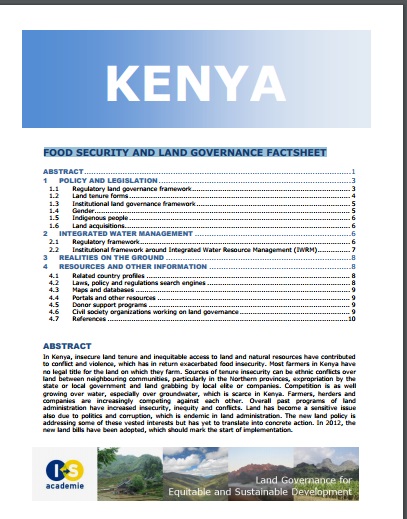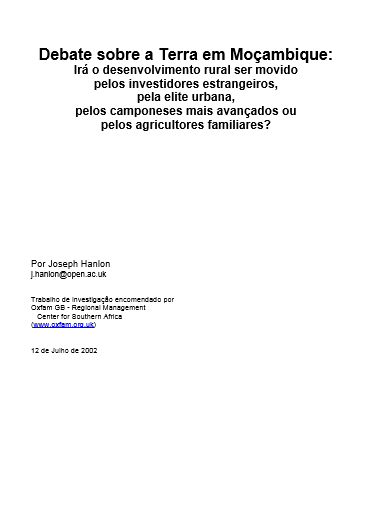Food security and land governance factsheet
In Kenya, insecure land tenure and inequitable access to land and natural resources have contributed to conflict and violence, which has in return exacerbated food insecurity. Most farmers in Kenya have no legal title for the land on which they farm. Sources of tenure insecurity can be ethnic conflicts over land between neighbouring communities, particularly in the Northern provinces, expropriation by the state or local government and land grabbing by local elite or companies. Competition is as well growing over water, especially over groundwater, which is scarce in Kenya.





